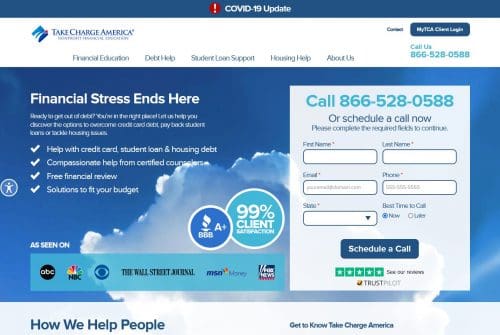
PHOENIX–(BUSINESS WIRE)–As adults approach retirement, more are turning to debt to make ends meet. In 2020, retirees’ non-mortgage debt more than doubled to $20,000, according to the latest State of Retirement Finances report from Clever.
“Debt can delay your retirement dreams and cause undue stress in your golden years,” said Michael Sullivan, a personal financial consultant with Take Charge America, a nonprofit credit counseling and debt management agency. “Although paying down debt in retirement can be challenging, you’ll regain a sense of financial freedom and be able to enjoy your hard-earned money.”
Sullivan shares several strategies to help older adults pay off debts:
- Remember to budget. You can’t pay off your debt without a budget, which gives you a clear picture of your income and expenses. Make any necessary spending changes to prioritize debt repayment. Many budgeting tools are available including apps like EveryDollar or Mint. You also can use a spreadsheet. The 50/30/20 rule is a great budgeting strategy.
- Prioritize your needs. Paying off debt should be a priority heading into or in retirement. Be cautious of spending too much on adult children. Offer non-monetary assistance, such as childcare, if they are struggling financially.
- Sell big-ticket items. Consider selling big-ticket assets like RVs, boats or extra vehicles on platforms like Craigslist or Auto Trader and Boat Trader.
- Book a gig. Generate additional income on your own schedule with the gig economy. Drive for Uber or Lyft or consider renting out a spare room on Airbnb or VRBO. If you’re handy or can perform odd jobs, TaskRabbit connects you with people who need help with tasks from dog walking to deliveries. You can find part-time remote work on sites like FlexJobs or UpWork.
- Explore debt consolidation. Balance transfer credit cards, a home equity loan or a debt management plan can provide interest rate relief and allow you to make a single monthly payment rather than juggle multiple payments. Remember to carefully consider fees associated with any consolidation loan or balance transfer.
- Downsize. If you own your home and have equity, consider selling and moving into a smaller, more affordable house. Use proceeds to pay off debt.
- Beware of scams. Watch out for scams that claim to help you eliminate debt or offer some sudden financial windfall. They feed off your stress and anxiety.
For additional debt help, consider a free credit counseling session from Take Charge America.
About Take Charge America, Inc.
Founded in 1987, Take Charge America, Inc. is a nonprofit agency offering financial education and counseling services including credit counseling, debt management, student loan counseling, housing counseling and bankruptcy counseling. It has helped more than 2 million consumers nationwide manage their personal finances and debts. To learn more, visit takechargeamerica.org or call (888) 822-9193.